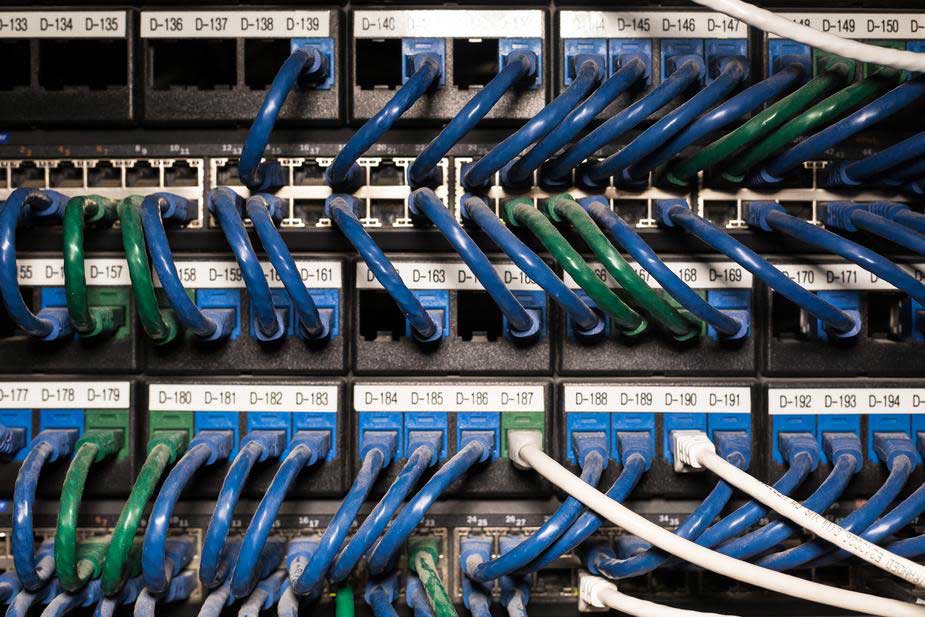
by Fred Stuvek Jr. | Apr 30, 2019
Communication is a skill that can be learned and developed. It is one of the top traits companies look at when hiring and promoting. Being an effective communicator is a prerequisite for success in all aspects of your life. To improve your communication skills do the following:
1. Listen – Listening is an important part of communication. The more you listen, the better you communicate. Put the technology away, focus, listen, and actively engage with the individual.
2. Learn Nonverbal Communication – First impressions are made quickly and are lasting. Be cognizant of the factors which encompass nonverbal communication, such as making eye contact, being cordial, confident, and approachable.
3. Study – Learn the techniques and subtleties of different types of communication, focusing on those areas where you have shortcomings.
4. Confidence – It is difficult to properly communicate, especially when speaking, if you are anxious, stressed, or overly emotional. Recognize which settings trigger anxiety and insecurity, simulate those settings, and practice.
5. Clarity – Think about what you are communicating and convey it in the most simple and straightforward manner possible. If the subject is complex break it down into smaller, more readily understood pieces using bullet points.
6. Venue – Many default to the mode of communication they are most comfortable with, which may or may not be the best or most appropriate medium. Ensure you are communicating in the most efficient manner given the topic, audience, and other issues such as distance or size of the audience.
7. Awareness – Know your audience. Put yourself in their shoes. Anticipate their questions and concerns and have clear responses prepared in advance.
8. Feedback – Engage with the other party or audience. Ask questions, respect the other person’s point of view and do not get defensive.
9. Assertiveness – Being assertive does not mean being aggressive. Be assured and confident enough to get your point across.
10. Regimen – Being a good communicator is an ongoing endeavor. Treat communication just like any other skill and develop it.
Read More
by Fred Stuvek Jr. | Apr 29, 2019





Read More

by Fred Stuvek Jr. | Apr 23, 2019
Over 90 per cent of all mail being sent or received is done so through electronic means. While e-mail is convenient and fast it also has its drawbacks as you have a constant flow, almost bombardment, of information, with speed trumping style, often resulting in a lack of context. Constant communication does not always equate to good communication and mistakes are made. In order to make the best use of your time and become more efficient and effective implement these following measures:
1. Set aside times each day for checking and responding to email versus continually checking it.
2. Read the entire email instead of skimming over, paying close attention when on mobile devices since the screen format has visual limitations.
3. Clarity, conciseness, and brevity are important. Try to say more with less, using shorter sentences and bullet points.
4. Proofread your email for spelling and grammar.
5. Consider the addressees on your email. Simply sending something to a wider audience is not always effective.
6. Avoid hasty, emotional responses you will later regret. Once you click it is gone and there is no recoverability.
7. Do not use e-mail for debating or arguing a position, especially with a wide audience.
8. Consider the appropriateness of the subject matter. Something which is confidential, private, or sensitive should not be sent out into cyber-space. If you must, limit distribution and ensure it is through secure means. Keep e-mail work-related and avoid political or social issues.
9. Keep a written list next to your desk to help reinforce your short-term memory.
10. Adopt a set of guidelines for the use of e-mail.
Read More

by Fred Stuvek Jr. | Apr 16, 2019
When communicating, there are impediments to successful transmission and receipt of the message. These barriers can be due to any number of factors. To ensure effective communication, you need to be cognizant of these barriers.
1. Language – Use of overly technical terms or jargon and disjointed talking points can leave the listener confused. If your language is not the listener’s native language this could present a barrier, as could dialect and inflection.
2. Mixed signals – Nonverbal communication needs to be consistent with what is being conveyed.
3. Mind-set – Attitude, bias, and preconceived notions affect communication.
4. Emotions – If someone is angry, resentful, or had a negative experience with the individual or organization, there may be resistance to the message. If someone has a poor self-image or lacks confidence, he or she will have a hard time getting their point across.
5. Assumptions – Confirm the audience has a grasp of the basic tenets of the subject matter, otherwise you are talking over their head. In a business presentation, ensure what you are presenting is of value to the customer and provides differentiation.
6. Culture – Business, social norms and customs can vary greatly depending upon the country. Ensure they are understood and addressed properly.
7. Gender – There is a difference is communication styles between genders, including issues involving emotional quotients, conflict resolution, and relationship building.
8. Physical – Distances between offices, organizations, and people are all examples. A noisy environment, poorly laid out conference room, and sub-par acoustics are also contributing factors.
9. Technology – If someone is working on their computer, looking at their phone, or texting while you are talking, they will retain little of what was said.
10. Timing – Communicating something at the wrong time or with short notice may result in the individual being caught unaware and may evoke a negative or emotional response.
Read More








